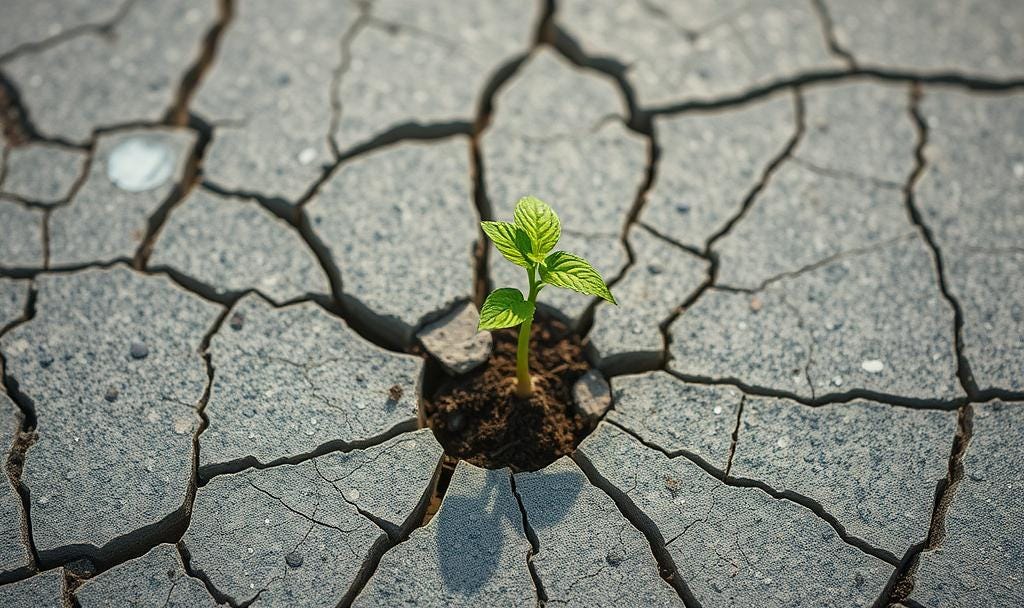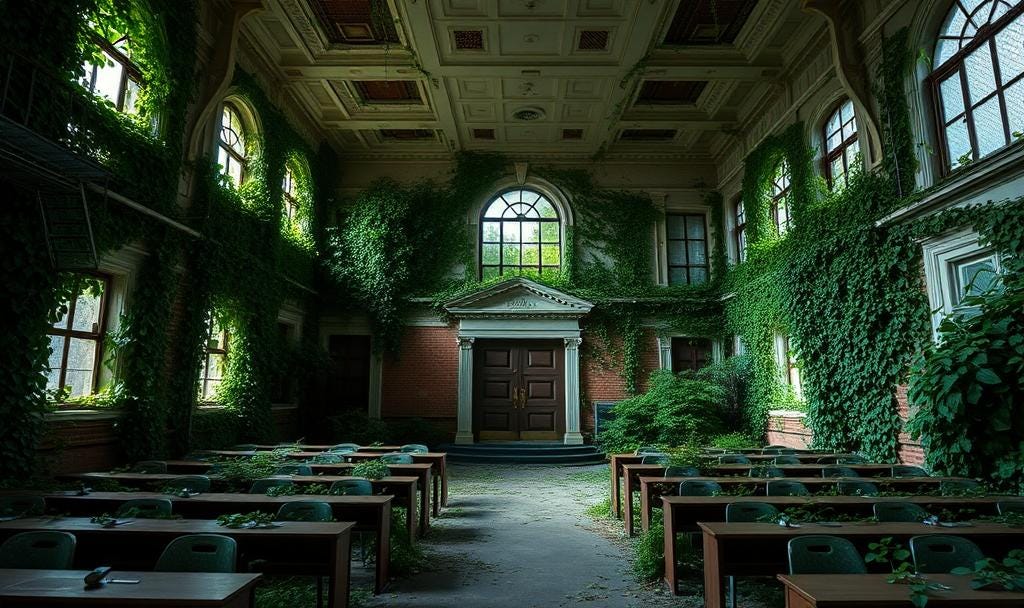Before the Lie: Playing The Last of Us Part I After Part II
Exploring the roots of grief, the walls we build, and the lies we tell ourselves.
Grief’s Opening Act: Sarah
Grief doesn’t arrive gently. Sometimes it creeps in, other times it detonates like an emotional bomb, leaving wreckage in its wake. Playing The Last of Us Part I while moving through the remnants of my breakup felt hauntingly familiar. Both Joel’s world and mine began with something stolen, something shattered.
Watching Joel cradle Sarah as the world collapsed wasn’t just a scene. It was a visceral gut punch. I thought of the moment my relationship ended: the sharp rupture when the imagined future I had carried dissolved in a single 5 a.m. breakup text and subsequent erasure from his life. Like Joel, I had no choice. Life already made it for me.
And just as Joel staggered into the next twenty years with walls around his heart, I convinced myself that shutting down was the only way forward. For the better part of fifteen months, I drifted in and out of grief.
That opening sequence reminded me that grief doesn’t demand endurance above all. Sometimes the most mindful thing we can do is notice how deeply a wound still stings, acknowledging the weight that carries, and even for a moment..give ourselves permission to set it aside.
Surviving by Walls: Tess and the QZ
Decades later, Joel has built himself into stone. The tenderness we saw with Sarah is buried beneath muscle, violence, and detachment. Even after Tess’s death (RIP 🤘), he barely lets a crack show. He buries it and keeps moving.
I recognized that impulse immediately.
After my breakup, I built my own walls. It wasn’t to forget, but to deny myself the possibility of being hurt again. That’s what walls really are: a quiet form of denial. You don’t erase the past; you simply refuse to feel its echoes. You say: never again.
For a time, denial feels protective. It contains grief, makes it manageable. But it also cuts you off from tenderness, joy, and connection. Joel convinces himself those walls are the only way to survive.
For many years, perhaps they were.
But when Ellie enters his life, real cracks begin to form..the kind that shake your foundations. What once kept him safe starts to look like the very thing preventing him from truly living.
Humor in the Ruins: Enter Bills Town
Our lovely friend Bill barricades himself with a town of traps, paranoia, and isolation. His world is engineered to keep out danger and often by association..people. Yet Ellie disrupts him. Her punny jokes irritate, her curiosity unsettles, and slowly we see a light leak through the cracks in another hardened survivor.
I’ve felt the same during grief. A friend’s laughter or a fleeting joy sometimes slipped past my defenses, and it almost felt wrong. But TLOU reminds us that humor doesn’t cancel sorrow. It coexists with it. Mindfulness means letting those interruptions in: allowing the laughter, allowing the warmth. Even walls built on denial can’t fully silence the human pull toward joy.
Dreams That Fade: The University
When Joel and Ellie reach the university, they’re chasing hope: a cure, a future, meaning. But the campus is empty. The Fireflies are gone. Another dream, vanished.
That resonated deeply. After my breakup, I revisited the life I had imagined, wondering if I could salvage it. Like the university, my dreams stood silent. It was just me. I was there alone..waiting for answers that never came.
Mindfulness here means noticing that disappointment without rushing past. It means accepting that sometimes the places we pin our hopes are only reminders of what we’ve lost. The pain remains. Choosing to sit with it allows clarity to surface.
Breaking Through: Joel and Ellie’s Bond
Ellie isn’t a cure, a replacement, or a savior. She’s an interruption. She asks the questions Joel resists, pushes him to feel, insists on being seen. Their bond isn’t forged in a single moment but through countless small ones: a pun book, a shared joke, the quiet of a campfire.
Watching them, I saw my own walls. I saw the way I denied myself the softness because it felt dangerous. But connection sneaks in regardless. Ellie shows us that cracks in our defenses aren’t weaknesses but entry points. Mindfulness is noticing those small openings, letting the light in even when we believe it shouldn’t.
The Quiet Between Battles: Beauty in Ruin
Amidst the violence, what lingers are the quiet fragments of life. By that I mean stuff like Ellie marveling at giraffes, sunlight freckling across city ruins or laughter echoing in places once filled with horror movie like terror. These moments insist that beauty will persist, even when grief is deafening.
After my breakup, I treated joy as betrayal. Smiling felt like contradiction. But TLOU showed me that joy and grief can coexist. Mindfulness means pausing to breathe in these crazy moments, letting wonder reach us without guilt.
They are not distractions. They’re a part of living.
Like an Emotional Bomb: Henry and Sam
Henry and Sam’s deaths arrive suddenly and violently. One moment there’s laughter, community and hope. The next…devastation.
I will sit with that now, recalling other times when life collapsed before I had the means to process it. Mindfulness here isn’t avoidance but a form of surrender: letting the pain surface and identifying those pent up emotions like helplessness, anger, and sorrow. Feeling fully allows denial’s walls to soften, if only slightly.

Survival and Growth: A Winter with Ellie
When Joel is injured and Ellie becomes protector and MC, the story takes a notable turn. We see her resilience and vulnerability in equal measure. She survives not because the world is kind but because she refuses to surrender(..and is the MC) haha!
This mimics my own non MC journey after heartbreak. I had to stand alone, face fear, and discover a new strength I didn’t know I had. Mindfulness in this sense is noticing the absurd paradox: survival is brutal, yet revealing. Loneliness hurts, but also teaches us how much we can endure.
Denial Revisited: A Father’s Choice
By the end, Joel’s walls transform into yet another form of denial. Faced with losing Ellie, he refuses. He lies and reshapes his reality to protect what he cannot bear to lose.
Though I’m not a parent yet, I can’t say I wouldn’t have done the same. In fact I’ve already done the same in smaller ways. I’ve twisted truths and insisted I didn’t care; burying feelings just to survive. Denial becomes a story we tell ourselves. Joel’s choice is messy, tender, selfish and obviously human.
It raises a question: how often do we cling, not only out of love, but out of fear of emptiness?
Mindfulness doesn’t judge this impulse. It names, notices, and examines how it shapes our choices and hearts.
Final Thoughts
The Last of Us Part I isn’t a tale of closure. It’s a story of endurance; of living with grief without letting it erase connection or joy. Joel never heals neatly. Neither will I. And maybe thats okay.
Maybe healing isn’t about neatness. Maybe it’s about noticing the chinks in our armor and letting the light in, even when it terrifies us. And maybe, JUSTT maybe..it’s about realizing that even in ruins, love remains.
Thanks for reading!
Image credits - Unsplash and Substack






This is the first post I've re-read, because I don't think I gave it enough attention the first time round. I'm glad I did. This was stunning and deep, and extremely personal. Thank you for sharing it and tying the complexities of life into something simpler we can all understand.
I really liked this article. Sometimes games that carry specific themes hit us differently when we're going through something that allows us to attune emotionally to the game's events.
I happened to play Red Dead Redemption 2 at a time when I was dealing with some personal struggles and it hit me so heavily... I think if I played it for the first time today it would be different.
It makes me wonder if playing something like God of War also feels different when you have a child.